Top 7 Trends Every Magento Merchant Should Watch in 2024

As we look forward to 2024, the eCommerce experience is rapidly changing due to advancements in technology and evolving consumer habits. Magento, a top eCommerce platform, remains a key player in driving this transformation.
In this blog, we’ll look into the 7 latest Magento trends influencing the future of eCommerce in 2024 and offer guidance on how merchants can embrace and capitalize on these trends for their success.
Enhanced AI and Machine Learning for Personalized Journeys
- In 2024, Magento has undergone a transformative integration with advanced AI and machine learning technologies, marking a significant leap forward in eCommerce capabilities. This integration enables Magento stores to offer highly personalized shopping experiences, leveraging AI for tailored product recommendations and predictive search functionalities.
- By analyzing customer data in real-time, merchants can anticipate individual preferences and behaviors, resulting in improved customer engagement and higher conversion rates. With AI-driven insights, Magento empowers merchants to foster stronger customer engagement ultimately leading to increased loyalty and satisfaction, and deliver highly personalized online shopping experiences.
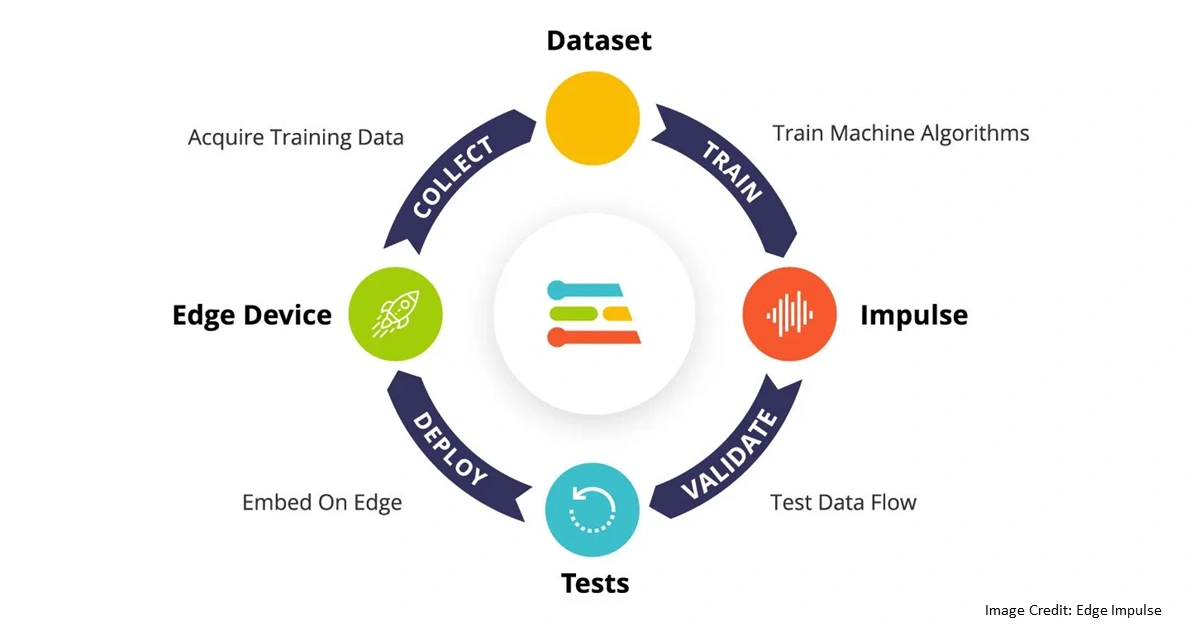
Headless Commerce in Magento takes the Lead
- Headless commerce represents a modern architectural approach that distinguishes the front end of a store from its backend functionalities. Decoupling the storefront’s CMS and UI over Magento allows merchants more flexibility and scalability in technology stack choices for building the front-end while the back-end manages core functions like product and order management.
- This flexibility enables merchants to create a customized shopping experience aligned with their specific needs and brand identity. Now, merchants utilize this capability to improve performance and enhance the user UI/UX on mobile devices. Moreover, headless commerce is beneficial for integrating eCommerce stores with other systems like CRM, ERP, PIM, OMS, and marketing automation platforms, enabling businesses to deliver a cohesive customer experience across all channels. This approach fosters consistent growth and scalability for Magento merchants, not just in 2024, but for years to come.
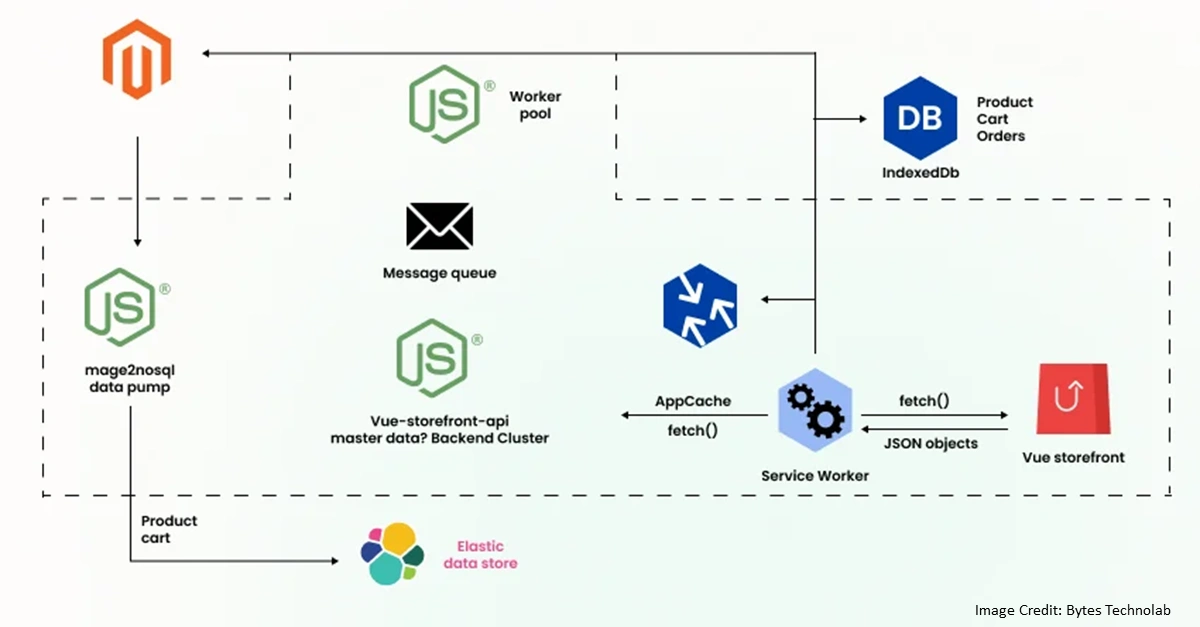
Adapting Magento’s Microservices Architecture
- The Magento Association and Mage-OS Association are playing active roles in shaping the future of the Magento Community. Adobe has introduced a new framework for Magento based on microservices, intending to bolster its future-proofing capabilities. This framework leverages serverless functions on Adobe I/O, allowing for customizations through PWAs on the frontend, Adobe I/O for backend business logic, and integration via GraphQL, REST APIs, and middleware for both frontend and backend operations.
- This microservices approach revolutionizes Magento for merchants by providing unparalleled scalability, flexibility, and customization. With modular development and independent service deployment, merchants can efficiently handle increased workloads while adapting swiftly to market changes. This agility not only enhances performance but also allows for tailored user experiences.
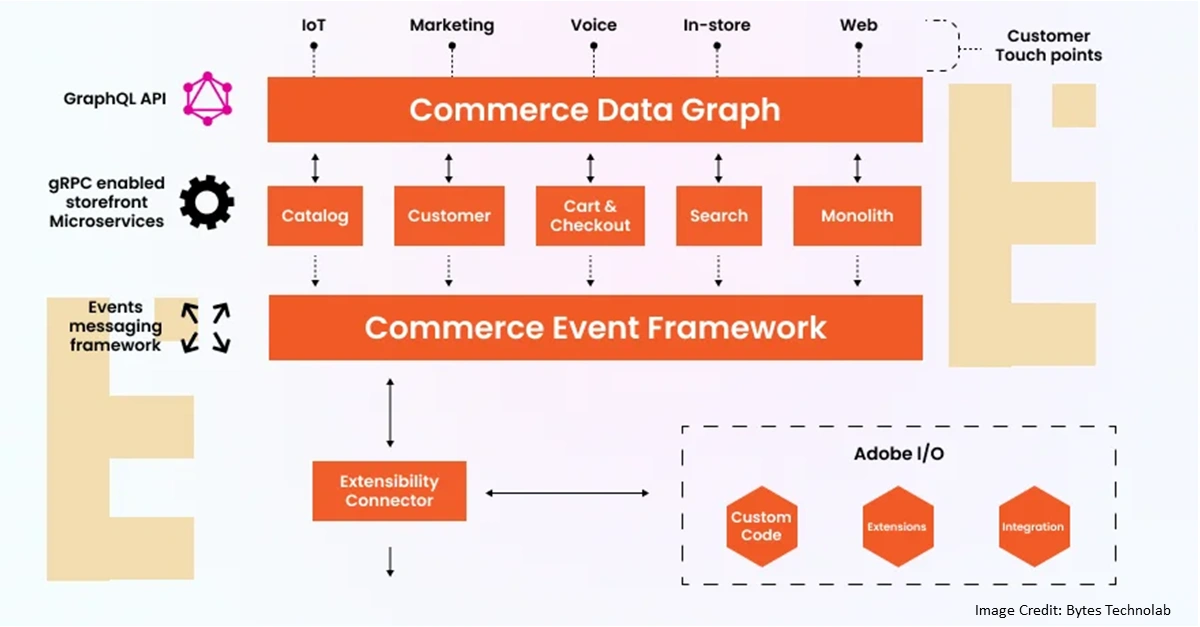
Augmented Reality (AR) and Virtual Reality (VR) Experiences in Magento
- Augmented Reality (AR) and Virtual Reality (VR) have become an essential component of the Magento ecosystem. Integrating AR and VR technologies enhances customer shopping experiences by allowing them to see products in real-life settings or navigate virtual storefronts.
- Magento enables AR and VR experiences by integrating with third-party platforms. By 2024, AR and VR have shifted from being new ideas to crucial tools for engaging customers, especially in industries like fashion, furniture, and home decor.

Progressive Web Apps(PWAs) in Magento
- In 2024, mobile commerce continues to dominate, emphasizing the necessity of prioritizing mobile-friendly design within Magento. Optimizing mobile experiences is critical as more buyers shop via mobile devices. Progressive Web Apps (PWAs) stand out as a significant trend in this realm, offering users app-like experiences directly through web browsers, without the need for traditional app downloads.
- With Magento’s PWA Studio, merchants gain the capability to develop highly responsive, fast-loading, and visually appealing mobile storefronts. These PWAs not only enhance user experience but also enable seamless browsing and purchasing across various devices, contributing to increased customer satisfaction and improved conversion rates.
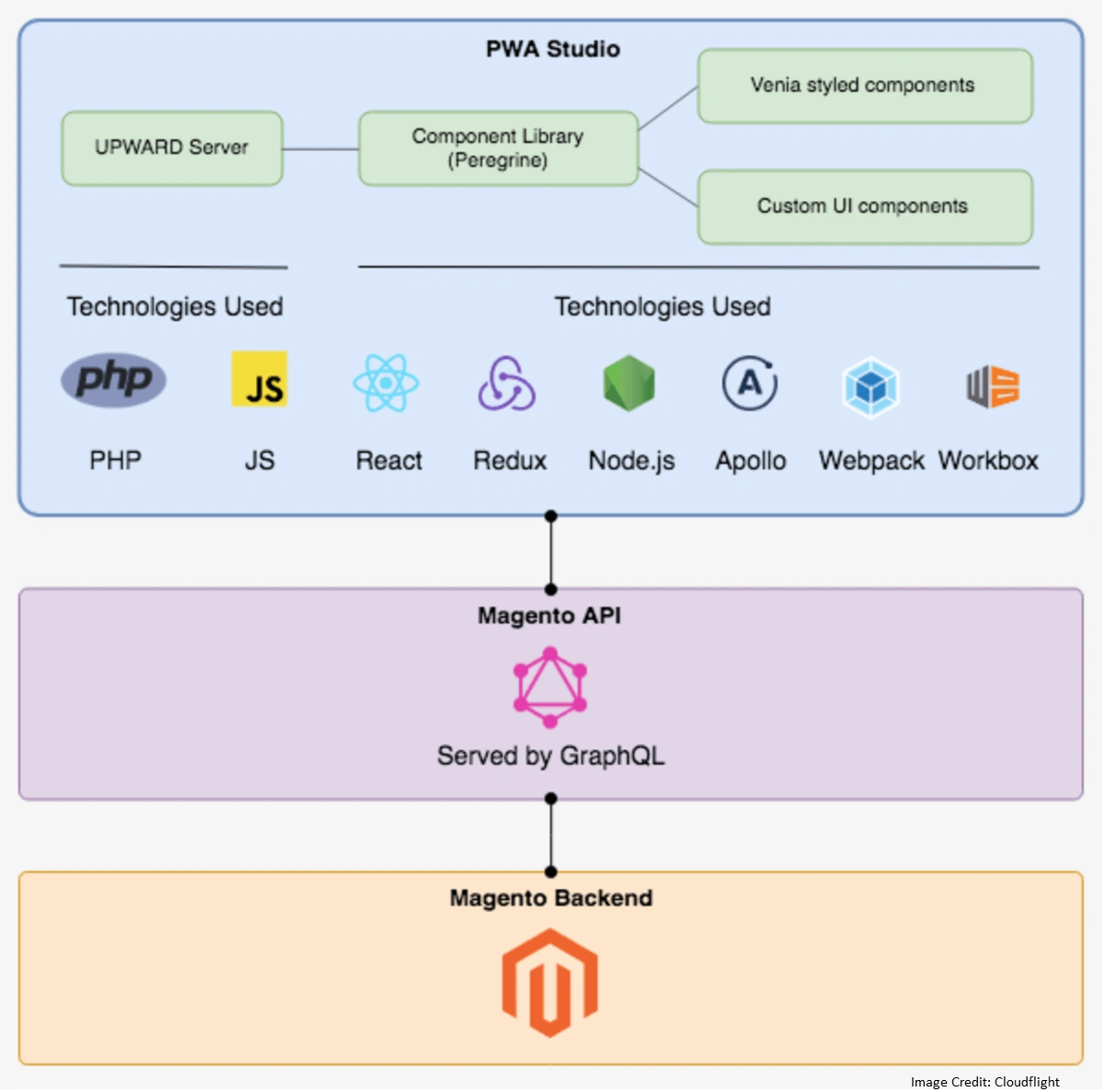
Magento’s Omnichannel Integration
- Omnichannel integration is the practice of consolidating various business channels into one unified platform. For example, if merchants sell products across social media, online, and physical stores, adopting omnichannel integration ensures customers receive a consistent shopping experience.
- In today’s eCommerce world, customers expect seamless interactions with brands across all channels. Therefore, implementing an omnichannel strategy with Magento serves as a bridge to connect customers with the brand regardless of the sales channel. This integration also offers customization options to simplify management tasks and allows integration with third-party solutions like POS, CRM, and inventory management systems, streamlining operations further.
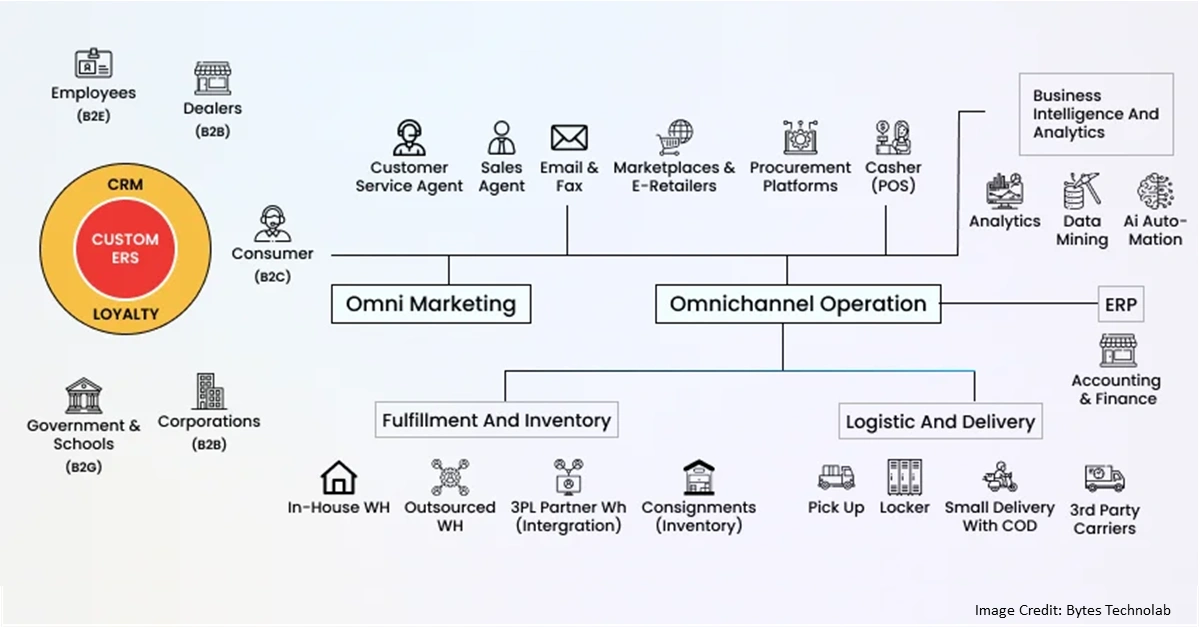
Voice Commerce Integration in Magento
- Magento has provided support for voice commerce, enabling customers to utilize voice assistants like Alexa, Siri, or Google Assistant for online product search, browsing, and purchasing. Through integration with the Magento API, GraphQL API, or third-party services like Amazon Alexa Skills and Google Actions, Magento facilitates voice interactions within the store.
- Leveraging the natural language processing and speech recognition features of these voice assistants, merchants can offer seamless and intuitive shopping experiences to their customers.

Conclusion
In conclusion, the eCommerce landscape is ever-changing, presenting both opportunities and challenges for Magento merchants. By remaining on top of the latest trends and technologies, you can enrich customer experiences with personalized, seamless, and omnichannel shopping journeys. If you’re seeking assistance in expanding your business and staying ahead of the industry, don’t hesitate to reach out to us. Let’s collaborate to bring your vision to life!